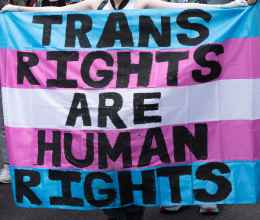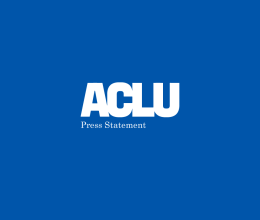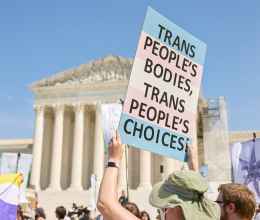
“Hello, my name is Cody and my pronouns are he, him and his.”
That has now become my standard greeting at meetings and events. It wasn’t something that happened naturally, but with a little practice and intention, it became a habit.
The practice of being intentional about using pronouns – and asking others about the pronouns they use – is all about respect. It ensures we’re using language that affirms the identities of everyone present, that doesn’t make assumptions about a person’s gender identity, and promotes awareness of transgender and gender nonconforming communities.
It’s really quite simple and shouldn’t be controversial!
But last week, lawmakers passed Senate Bill 2231, legislation that would prohibit schools from adopting inclusive policies that acknowledge the gender identity of their students. In short, this bill would prohibit schools from referring to students and employees by any pronouns that doesn’t reflect the sex assigned to them at birth. The bill now waits for Gov. Doug Burgum’s action.
The ACLU of North Dakota opposes Senate Bill 2231. No one is harmed by allowing teachers, administrators and counselors to create a safe and welcoming educational environment for students in our public schools.
Many schools across the country recognize that a supportive learning environment requires treating students with dignity and respect, including – at a minimum – calling them by the name and pronouns they want to use. It is important to remember that everyone is impacted by gender and everyone has a desire to be referred to respectfully. That might mean different things for different people. Regardless of how you may feel about pronouns, it is important to use the pronouns someone uses for themselves.
All people are affected by gender and have identities that need to be affirmed and respected, but many cisgender people do not need to worry about having our gender identities recognized. We have the privilege of not having to think much about our gender or about people respecting our names and pronouns.
That isn’t the case for many gender nonconforming and transgender folks. Many transgender people fight on a daily basis to have their names and pronouns respected, which is no small or trivial feat. Names and pronouns shape how we are viewed in the world and are important pieces of our identities. For trans youth, especially those who cannot be safe at home, school may be one of the few places to be themselves. Trans youth thrive when they are affirmed in their gender identity, which includes being called by a name and pronouns that reflect who they are.
Creating spaces and practices that affirm people’s names and pronouns is a step toward greater inclusion. It creates room for people to respect one another and be our full selves. While this may appear as a minor change, these brief interactions can serve as an entry point for people to think about their individual practices and we can build upon these moments to create systemic changes and larger cultural shifts.
The ACLU has long advocated for the rights of both transgender and gender nonconforming people to be who they are and to have an equal opportunity to participate fully in all aspects of our society. Because this work is largely focused on eliminating gender stereotypes, it is also deeply connected to our work advocating for women’s rights and the rights of LGBTQ+ and Two Spirit people.
Discriminatory legislation like Senate Bill 2231 is motivated by ignorance, misinformation and fear. We send people to Bismarck to solve actual problems in our state, not to find ways to attack LGBTQ+ and Two Spirit people. With serious issues like our state’s workforce shortage, affordable childcare, education funding and health care, we urge Gov. Burgum to focus on the issues that really matter and veto Senate Bill 2231.





